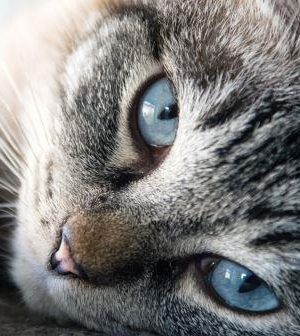- Do you subscribe to Dharma Dog Training’s Newsletter? You should.
- A Unique Campaign from The Humane Society of the United States
- Rabid bats in Omaha- Stay safe, prepared with these tips
- Springtime Activities in Omaha
- Mill Dog Monthly from Bailing Out Benji
- World Spay Day, Legislative Alert in Nebraska
- Attend the Nebraska Rescue Council’s monthly meeting this Saturday
- Five Hard-to-Ignore Reasons to Adopt!
- Paws in Pink to Benefit Breast Cancer Foundation
- VCA, Inc. Acquires MidWest Vet Specialists from Kansas State University
5 Popular Houseplants That Are Toxic to Cats

There’s something beautiful about setting up an indoor oasis of plants. From houseplants that flower to succulents that like it dry, keeping plants indoors is a great way to personalize and style your space.
Did you know that many popular houseplants are actually toxic to cats? Only a few of these plans are widely known to be toxic, while others have flown under the radar. Learn more about these five popular houseplants that are toxic to cats.
Reminder: What To Do If Your Cat Is Exposed
Are you worried that your cat has ingested some plant material and is showing signs of illness?
If your cat seems to be in distress, contact your vet immediately. Take your pet, as well as information about the plants they may have consumed, with you for an emergency visit. Instead of trying to treat your pet yourself, it’s key that you get help from an experienced professional.
Remember, today’s list does not cover every single plant that can be dangerous to your cat. Always check new plants for toxicity before bringing them home.
Dieffenbachia (Spotted Dumb Cane)
Dieffenbachia has many different names you may know it as:
- Charming dieffenbachia
- Spotted dumb cane
- Exotica perfection
- Gold dieffenbachia
- Tropic snow
This houseplant is a tropical flowering plant that is part of the Araceae family. A beautiful specimen, many houseplant lovers are attracted to the charming flowers that it produces.
However, according to lolcats.com this plant contains high amounts of insoluble calcium oxalate. These crystals are known to cause oral irritation for pets. This irritation leads to:
- Drooling
- Vomiting
- Swallowing trouble
- Burning sensation
This plant is not known to be deadly to cats, but it can be highly painful and uncomfortable for them if they chew on or ingest this plant.
Lilies
Many cat owners know of the risk that lilies can have for their pets. Due to the popularity of Easter lilies, in particular, cat owners have become aware of how dangerous lilies can be. While lilies aren’t often kept as a houseplant, they are usually included in bouquets and other displays that are brought into the home.
Peace lilies are beautiful, but they contain high amounts of calcium oxalates.
Not all plants with the word “lily” in their name are toxic; there are many varieties that are incredibly dangerous to cats. Only a tiny bit of a poisonous lily must be ingested to cause death. Simply licking the plant’s pollen or drinking from the lily vase could cause serious health issues.
Cats that come into contact with lilies need to be treated immediately. Contact a vet or poison control if you suspect your cat has been in contact with lilies. Acting quickly may allow you to save your pet’s life.
Aloe Vera
Another dangerous plant that is well-loved by plant keepers is aloe vera. Many people think of aloe vera positively since the gel can be used medicinally, but the plant itself can cause problems for your cats if they ingest it.
Specifically, aloe can cause the following symptoms in cats if ingested:
- Vomiting
- Diarrhea
- Lethargy
While it’s unlikely to cause death, the saponins and anthraquinones found in the plant are toxic to cats and can put them through very painful medical issues. It’s best to avoid having aloe vera where your plants can reach the plant.
Pothos
Pothos is one of the most popular types of plants for all types of plant owners, but this plant may not be the right option if you have cats! Like some of the other popular houseplants listed today, pothos often contain insoluble calcium oxalates. When ingested by your cat, they can cause painful reactions like vomiting and oral or throat swelling.
Thankfully, pothos plants aren’t known to be toxic to cats, but you may still want to steer of this houseplant.
Sago Palm
Finally, let’s talk about the sago palm. Often called a cardboard palm, some types of sage palms are kept as houseplants. Unfortunately for cat owners, the entire plant contains toxic components. The seeds, in particular, can be very dangerous for cats and may even cause liver damage.
You must act quickly and aggressively if you notice any of the following symptoms in your pet:
- Vomiting
- Diarrhea
- Black stool
- Lethargy
Check All Your Plants
These five plants are just some of the most popular houseplants that you might have which pose a danger to your pets. There are so many plants that can be poisonous to pets; research the plants that you have at home before allowing your pets near them unobserved.
Even if your cat seems to never go near your houseplants, you do not want to risk a serious illness just to keep a plant. Instead, find other ways to occupy them inside, such as growing cat grass for them!
Latest News
-
3 Tips for Pet Owners on Training Rescue Dogs
Owning a rescue dog can take some work compared to...
- Posted 1 week ago
- 0
-
Choosing the Right Pet for Your Lifestyle
Are you thinking about getting a pet but unsure what...
- Posted 3 weeks ago
- 0
-
How to Make Your Rescue Pet as Comfortable as Possible
Did you bring home a new pet from a shelter...
- Posted 2 months ago
- 0
-
How Having A Pet Can Change Your Life
Having a pet can open your heart in ways that...
- Posted 7 months ago
- 0
-
How To Improve The Life Of Your Senior Pet
Do you have an elderly fur baby and want to...
- Posted 7 months ago
- 0
-
Springtime Activities To Enjoy With Your Furry Friends
Are you preparing for warmer weather and want some ideas...
- Posted 8 months ago
- 0
-
Pros And Cons Of Microchipping Your Pets
Have you considered whether your pets should be microchipped and...
- Posted 9 months ago
- 0

















You must be logged in to post a comment Login